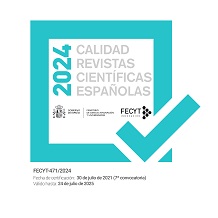Board game as an educational media for dengue prevention knowledge for school-aged children
Abstract
Indonesia is one of the endemic countries for dengue fever, and for the incidents are increasing year by year. Children are the risk population to dengue incidents than the others age groups. Part of the dengue prevention is increasing the knowledge, and also the children’s knowledge. The use of the game is the enjoyable way for learning in children.
Aim: The aim of the study was to know children's basic knowledge about dengue prevention and develop an educational media for children. This study uses a quasi-experimental design with pre and post-test and using a control group.
Method: The participants are a school-aged children between the ages of 10-12 years old with total 92 participants who were divided into intervention group and control group.
Results: The results showed that there are a significantly increasing score at children basic knowledge at intervention group about dengue fever sign and symptom (p=0,001); prevention strategy based on Indonesia Health Ministry guidelines (p=0,001); chemistry agent (p=0,000); biology agent (p=0,000); self-protection (p=0,001); and immune system (p=0,001). There are difference knowledge between intervention and control groups (p=0,000).
Conclusion: The conclusion of the study is board game can be designed to be an educational media to give a health education about dengue prevention strategy to the children.
Downloads
-
Abstract1584
-
PDF (Español (España))1148
-
PDF1148
References
World Health Organization. Global Strategy for Dengue Prevention and Control 2012-2020 [Internet]. WHO Library Cataloguing-in-Publication Data; 2012. Available from: http://www.who.int/denguecontrol/9789241504034/en/
World Health Organization. Managing Regional Public Goods for Health: Community-Based Dengue Vector Control [Internet]. Asian Development Bank and World Health Organization; 2013. Available from: http://www.wpro.who.int/mvp/documents/den_vec_control/en/
Kementerian Kesehatan RI. Profil Kesehatan Indonesia Tahun 2015 [Internet]. Jakarta: Kementerian Kesehatan RI; 2016. Available from: http://www.pusdatin.kemkes.go.id/article/view/16091600001/profil-kesehatan-indonesia-tahun-2015.html
Abe, AH, Solomar MM, Paulo SC. Dengue in children: from notification to death. Rev Paul Pediatr 2012;30(2):263-71. http://dx.doi.org/10.1590/S0103-05822012000200017
World Health Organization. Comprehensive Guidelines for Prevention and Control of Dengue and Dengue Haemorrhagic Fever Revised and Expanded Edition [Internet]. World Health Organization, Regional Office for South-East Asia; 2011. Available from: http://www.searo.who.int/entity/vector_borne_tropical_diseases/documents/SEAROTPS60/en/
Council on School Health. Role of the School Nurse in Providing School Health Services. American Academy of Pediatrics; 2013. http:///doi.org/10.1542/peds.2008-0382
Blumberg, F. C., Almonte, D. E., Anthony, J. S., & Hashimoto, N. Serious games: What are they? What do they do? Why should we play them? The Oxford handbook of media psychology (pp. 334e351); 2012. http://doi.org/10.1093/oxfordhb/9780195398809.013.0019.
Taspinar B, Werner S, Heidi S. Gamification in Education: a Board Game Approach to Knowledge Acquisition. Procedia Computer Science 99 (2016) 101 – 116. http://doi.org/10.1016/j.procs.2016.09.104
Bontchev B, Dessislava V. Modeling Educational Quizzes as Board Games [Internet]. Proc of CSEDU International Conference on Computer Supported Education; 2013. Available from: https://waset.org/publications/4813/educational-quiz-board-games-for-adaptive-e-learning
Dinas Kesehatan Yogyakarta. Profil Kesehatan Kota Yogyakarta Tahun 2015 [Internet]. Yogyakarta: Dinas Kesehatan Yogyakarta; 2015. Available at: http://www.pusdatin.kemkes.go.id/resources/download/profil/PROFIL_KAB_KOTA_2012/3471_DIY_Kota_Yogyakarta_2012.pdf
Schmidt ME, Vandewater EA. Media and attention, cognition, and school achievement [Internet]. The Future of Children Vol.18/No.1/Spring 2008 . Available from: https://pdfs.semanticscholar.org/b51d/7de097ebaa0bfdc56da07b5b79b1936277a2.pdf
Suwanbamrung, Charuai. Children’s basic knowledge and activities for dengue problem solution: an Islamic religious school, Southern Thailand. Asian Pacific Journal of Tropical Disease (2012) 456-464. Available from: https://doi.org/10.1016/S2222-1808(12)60100-5
Beinner MA, Morais ÉAH de, Reis IA et al. The Use of A Board Game In Dengue Health Education In A Public School. J Nurs UFPE online., Recife, 9(4):7304-13, Apr. 2015. Available at: https://periodicos.ufpe.br/revistas/revistaenfermagem/article/view/13587
Jeelani, S, Sabesan, Subramanian. Community knowledge, awareness and preventive practices regarding dengue fever in Puducherry South India. public health 129 (2015) 790-796. Available from: http://doi.org/10.1016/j.puhe.2015.02.026
Departemen Kesehatan RI. Pedoman Penatalaksanaan Demam Berdarah. Jakarta: Indonesia; 2015. Available from: www.depkes.go.id/development/site/depkes/pdf.php?id=1-17042500004
Sayavong C, Jiraporn C, Somsak W, Cheerwit R. Knowledge, attitudes and preventive behaviors related to dengue vector breeding control measures among adults in communities of Vientiane, capital of the Lao PDR. Journal of Infection and Public Health Volume 8, Issue 5, September–October 2015, Pages 466-473. Available from: https://doi.org/10.1016/j.jiph.2015.03.005
Abdulmajed, Yoo Soon P, Ara T. Assessment of Educational Games for Health Professions: A Systematic Review of Trends and Outcomes. Medical Teacher 2015, 37: S27–S32. Available from: http://doi.org/10.3109/0142159X.2015.1006609
Vesga-Gomez C, Caceres-Manrique FD. The efficacy of play-based education in preventing Dengue in primary-school children. Rev. salud pública vol.12 no.4 Bogotá July/Aug. 2010. Available from: http://www.scielo.org.co/scielo.php?script=sci_arttext&pid=S0124-00642010000400003
The works published in this magazine are subject to the following terms:
1. The Publications Service of the University of Murcia (the publisher) preserves the copyright of the published works, and encourages and allows the reuse of the works under the license for use stated in point 2.
© Servicio de Publicaciones, Universidad de Murcia, 2011 (© Publications Service, University of Murcia, 2011)
2. The works are published in the electronic edition of the journal under Creative Commons Reconocimiento-NoComercial-SinObraDerivada 3.0 España(texto legal) “ a Attribution-NonCommercial-NoDerivatives 3.0 Spain license (legal text)”. They can be copied, used, broadcasted, transmitted and publicly displayed, provided that: i) the authorship and original source of their publication (journal, publisher and URL) are cited; (ii) are not used for commercial purposes; iii) the existence and specifications of this license is mentioned.
3. Conditions of self-archiving. Authors are allowed and encouraged to electronically disseminate the pre-print (pre-reviewed ) and / or post-print (reviewed and accepted for publication) versions of their works prior to publication, as it ensures a wider circulation and dissemination which may lead to a possible increase in its mention and a higher scope among the academic community. RoMEO color: green.












